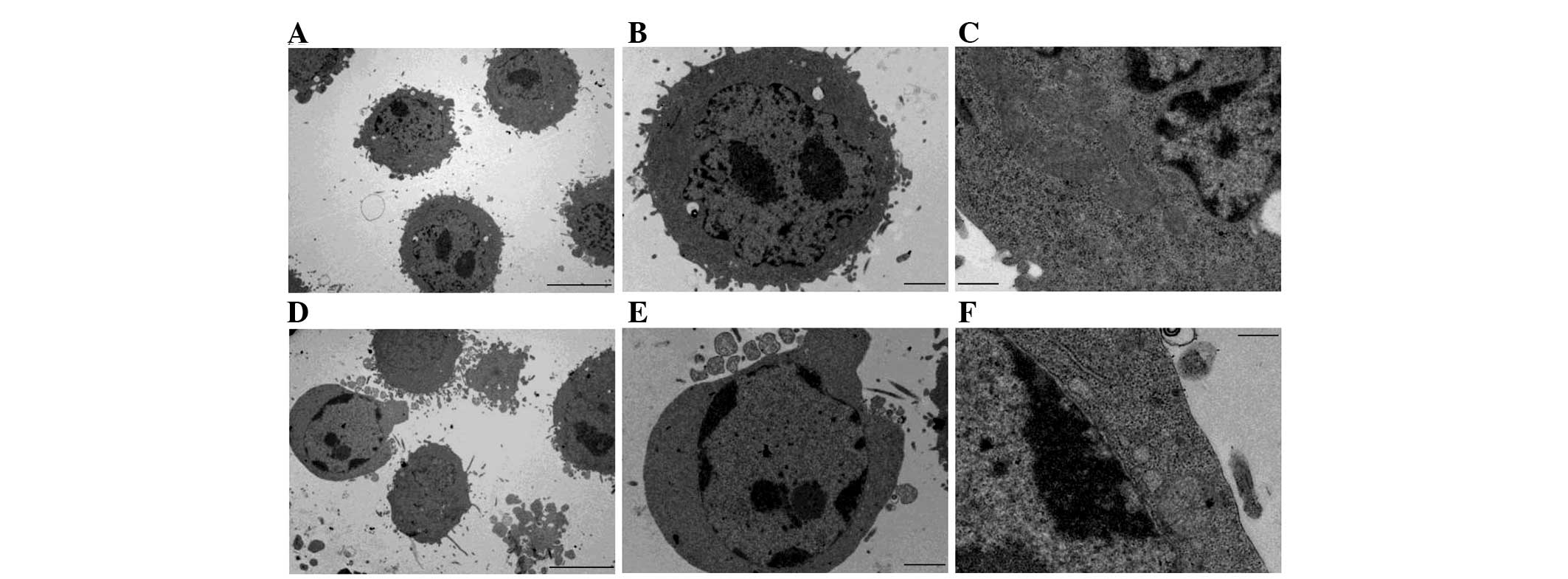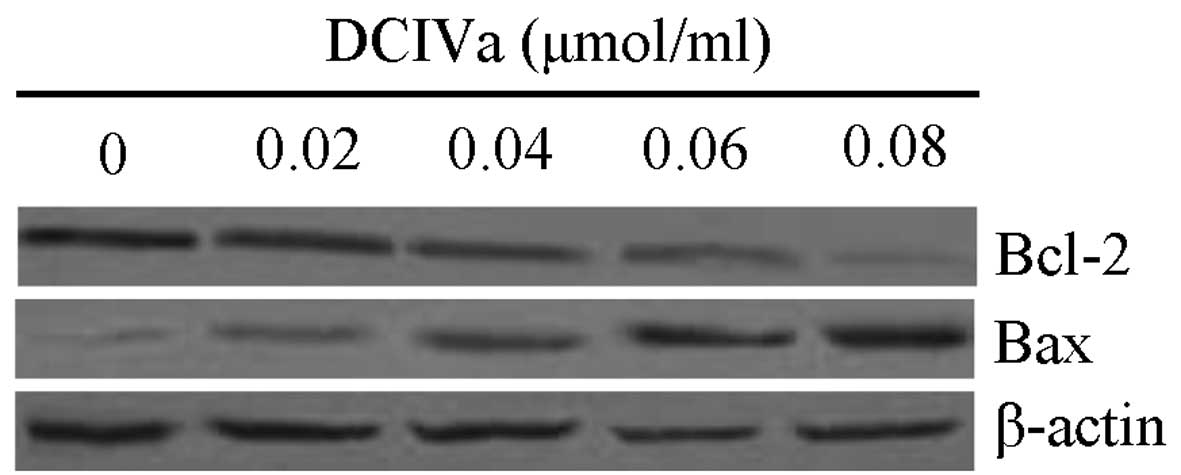|
1
|
Xu Q, Bauer R, Hendry BM, Fan TP, Zhao Z,
Duez P, Simmonds MS, Witt CM, Lu A, Robinson N, et al: The quest
for modernisation of traditional Chinese medicine. BMC Complement
Altern Med. 13:1322013. View Article : Google Scholar : PubMed/NCBI
|
|
2
|
Wang L, Li Y, Li J, Zhang M, Xu L, Yuan W,
Wang G and Hopewell S: Quality of reporting of trial abstracts
needs to be improved: Using the CONSORT for abstracts to assess the
four leading Chinese medical journals of traditional Chinese
medicine. Trials. 11:752010. View Article : Google Scholar : PubMed/NCBI
|
|
3
|
Zhao R, Zhao Y, Li D, Wang J and Zeng Y:
Research progress of panax japonicus. Modern Chinese Medicine.
10:3–6. 2008.
|
|
4
|
Zou K, Liu Z, Zhu S, Cai S and Komatsu K:
Research of ginsenosides in kou zi qi using HPLC-MS-MS. Yao Xue Xue
Bao. 39:385–388. 2004.In Chinese. PubMed/NCBI
|
|
5
|
Wang DQ, Feng BS, Wang XB, Yang CR and
Zhou J: Further study on dammarane saponins of leaves of Panax
japonicus var. Major collected in Quinling Mountains China. Yao Xue
Xue Bao. 24:633–636. 1989.In Chinese.
|
|
6
|
Zhu XH, Hou WJ and Li CD: Study of effect
of Panax Japonicus Saponin on spleen lymphocyte proliferous
response. Academic Journal of Kunming Medical College. 15:65–67.
1994.In Chinese.
|
|
7
|
He H, Shi M, Chen T, Lu X, Qin N and Chen
S: Anti-inflammatory and analgesic effect of water extractive of
Panacis Majoris Rhizoma in mice. Acta Academiae Medicinae Militaris
Tertiae. 20:202010.
|
|
8
|
Mengqiong S, Haibo H, Ningling Q and
Shuwei C: Effect of pretreatment with water extract from Rhizoma
Panacis majoris on cerebral ischemia-reperfusion injury in mice.
Acta Academiae Medicinae Militaris Tertiae. 3:0232011.
|
|
9
|
Chen T, Gong Z and Fu Y: Rhizoma Panacis
majori reduces toxicity of chemotherapy in S180-bearing mice. Zhong
Xi Yi Jie He Xue Bao. 6:1255–1258. 2008.In Chinese. View Article : Google Scholar : PubMed/NCBI
|
|
10
|
Chen C, Wu W, Xu X, Zhang L, Liu Y and
Wang K: Chain conformation and anti-tumor activity of derivatives
of polysac-charide from Rhizoma Panacis Japonici. Carbohydr Polym.
105:308–316. 2014. View Article : Google Scholar : PubMed/NCBI
|
|
11
|
Huang Z, Ren H, Duan X and Zhang L: Chain
conformation and bioactivity of water-soluble polysaccharide
extracted from Rhizoma Panacis Japonici. Biopolymers. 93:383–390.
2010.PubMed/NCBI
|
|
12
|
Song X, Li L, Yang G and Cai B: HPLC
determination of chiku-setsusaponin IVa in Rhizoma Panacis Majoris
from different producing areas. Zhongguo Zhong Yao Za Zhi.
35:885–887. 2010.In Chinese. PubMed/NCBI
|
|
13
|
Sun GB, Xu HB, Wen FC, Ding T and Sun XB:
Study of anti-experimental arrhythmia effect of deglucose
Chikusetsu Saponin IVa. Chin J Pharmacol Toxicol. 20:377–380.
2006.In Chinese.
|
|
14
|
Sun GB, Xu HB, Wen FC, Zhang W, Ding T and
Sun XB: Protective Effects of Deglucose Chikusetsu Saponin IVa on
Cultured Myocardial Cells Subjected to Anoxia Reoxygenation Injury.
Chin J Pharmacol Toxicol. 19:424–427. 2005.In Chinese.
|
|
15
|
Liu Y, Gao X, Deeb D and Gautam SC:
Oleanane triterpenoid CDDO-Me inhibits Akt activity without
affecting PDK1 kinase or PP2A phosphatase activity in cancer cells.
Biochem Biophys Res Commun. 417:570–575. 2012. View Article : Google Scholar :
|
|
16
|
Zhang H, Samadi AK, Rao KV, Cohen MS and
Timmermann BN: Cytotoxic oleanane-type saponins from Albizia
inundata. J Nat Prod. 74:477–482. 2011. View Article : Google Scholar : PubMed/NCBI
|
|
17
|
Gao X, Deeb D, Liu Y, Arbab AS, Divine GW,
Dulchavsky SA and Gautam SC: Prevention of prostate cancer with
oleanane synthetic triterpenoid CDDO-Me in the TRAMP mouse model of
prostate cancer. Cancers (Basel). 3:3353–3369. 2011. View Article : Google Scholar
|
|
18
|
Zhang W and Popovich DG: Group B oleanane
triterpenoid extract containing soyasaponins I and III from soy
flour induces apoptosis in Hep-G2 cells. J Agric Food Chem.
58:5315–5319. 2010. View Article : Google Scholar : PubMed/NCBI
|
|
19
|
Antonsson B and Martinou JC: The Bcl-2
protein family. Exp Cell Res. 256:50–57. 2000. View Article : Google Scholar : PubMed/NCBI
|
|
20
|
Reed JC: Double identity for proteins of
the Bcl-2 family. Nature. 387:773–776. 1997. View Article : Google Scholar : PubMed/NCBI
|
|
21
|
Paydar M, Kamalidehghan B, Wong YL, Wong
WF, Looi CY and Mustafa MR: Evaluation of cytotoxic and
chemotherapeutic properties of boldine in breast cancer using in
vitro and in vivo models. Drug Des Devel Ther. 8:719–733.
2014.PubMed/NCBI
|
|
22
|
Al-Fatlawi AA, Irshad M, Zafaryab M, Rizvi
MM and Ahmad A: Rice bran phytic acid induced apoptosis through
regulation of Bcl-2/Bax and p53 genes in HepG2 human hepatocellular
carcinoma cells. Asian Pac J Cancer Prev. 15:3731–3736. 2014.
View Article : Google Scholar : PubMed/NCBI
|
|
23
|
Narrima P, Paydar M, Looi CY, Wong YL,
Taha H, Wong WF, Ali Mohd M and Hadi AH: Persea declinata (Bl.)
Kosterm bark crude extract induces apoptosis in MCF-7 cells via
G0/G1 cell cycle arrest, Bcl-2/Bax/Bcl-xl signaling pathways and
ROS generation. Evid Based Complement Alternat Med.
2014:2481032014. View Article : Google Scholar
|
|
24
|
Bishayee A, Mandal A, Thoppil RJ, Darvesh
AS and Bhatia D: Chemopreventive effect of a novel oleanane
triterpenoid in a chemically induced rodent model of breast cancer.
Int J Cancer. 133:1054–1063. 2013. View Article : Google Scholar : PubMed/NCBI
|
|
25
|
Hartwell LH and Weinert TA: Checkpoints:
controls that ensure the order of cell cycle events. Science.
246:629–634. 1989. View Article : Google Scholar : PubMed/NCBI
|




















